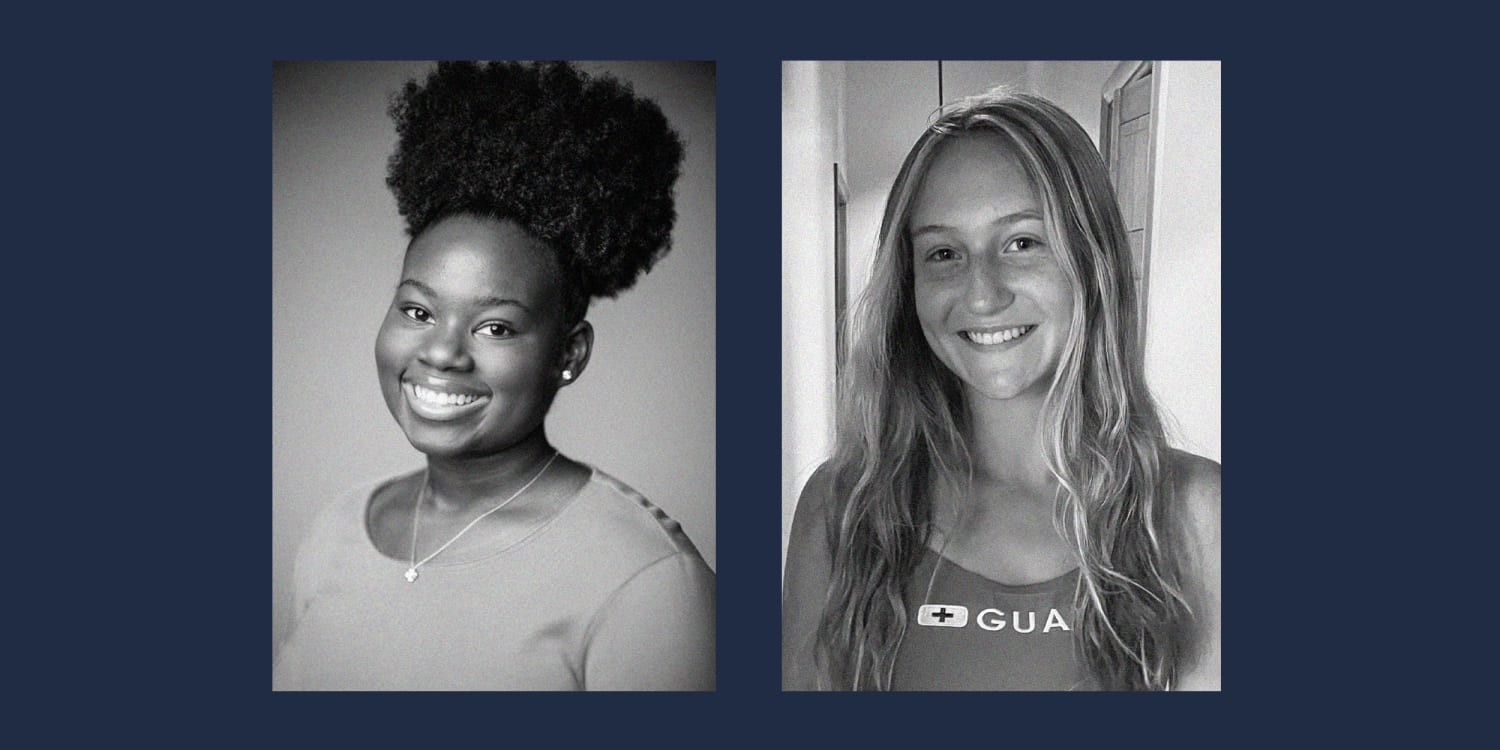When the pandemic began in March 2020, Hailey Kern, 15, of Suffern, New York, said she initially felt fine. She spent the early weeks and months of lockdown with her parents and two younger siblings, learning to adapt to online school. But after full-time, in-person learning resumed last fall, Hailey said, the pandemic left her feeling overwhelmed many days, making it difficult to get out of bed.
“It feels like you’re carrying 100 pounds on your back,” Hailey said of her anxiety. “At some point it just gets easier to pretend like you’re OK than to tell others you aren’t.”
Hailey started to see a psychiatrist with increasing regularity and was prescribed anti-anxiety medication.
Hailey is not alone. As the U.S. reaches the second anniversary of the pandemic, a growing number of parents and psychiatrists report that a return to in-person learning was not the magic bullet many had hoped it would be for school-age children and that the pandemic has resulted in a host of mental health challenges even for those young people who seemed as recently as a year ago to be faring relatively well.
“Going back to school five days a week with everybody on campus all together, it just wasn’t the answer,” said Sarah Kern, Hailey’s mother.
Dr. Jonathan Slater, a child and adolescent psychiatrist at New York Presbyterian Morgan Stanley Children’s Hospital, said he refers to the growing number of Generation Z patients he treats for pandemic-related mental health issues as “the walking wounded.”
“I’ve coined the term ‘Generation U’ for this generation — Generation U for Uncertainty. I think the biggest challenges facing youth today are just the uncertainty in what’s going to happen to them,” he said.
Slater said the mental health toll of the pandemic has manifested in children in various ways.
“There’s been much more anxiety and depression in young people. They’re acting out. They’re getting into more trouble. Maybe they’re getting involved with more substances,” he said.
According to the Centers for Disease Control and Prevention, the number of mental health-related emergency department visits among adolescents aged 12-17 jumped by 31 percent in 2020 compared with 2019. In February and March 2021, emergency department visits for suspected suicide attempts were 51 percent higher among girls ages 12-17 than during the same period in 2019.
And nationally, parents are reporting concerns about the mental health of their children. In a survey of 1,000 parents around the country facilitated by Lurie Children’s Hospital of Chicago, 71 percent of parents said the pandemic had taken a toll on their children’s mental health, and 69 percent said the pandemic was the worst thing to have happened to their children.
While many government officials and parents had predicted that a return to in-person learning would improve young people’s mental health, Slater said it has not been the cure-all many hoped it would be.
“Suddenly they’re back in school, and the expectations are ramped up to where they were, and that can be stressful, especially for students who already had some social anxiety,” Slater said. “Returning to school isn’t necessarily a panacea.”
Sydney Jackson, a high school senior in Hartsdale, New York, said her return to in-person learning was surprisingly jarring.
Sydney, who is active in student government and school musicals, said she has always prided herself on her ability to interact with others. But returning to in-person school after having spent months away from most of her peers made her feel socially awkward at times.
“I definitely experienced anxiety,” Sydney said. “I was learning how to have conversations and talk face to face again.”
Sydney said her anxiety resulted in fluctuations in sleep patterns — “I was either really tired all the time or I was up and I just couldn’t sleep. There were just two different extremes.”
To address her feelings, Sydney started seeing a professional counselor several months ago, which she said she never thought she would do before the pandemic.
Sydney said seeking professional help was a game changer.
“I feel like everyone should have someone to talk to,” Sydney said. “It’s definitely something I want to keep in my life, just having a space where I feel free.”
Sydney and Hailey say professional assistance has helped them get through their worst days of the pandemic. But nationally, Slater said, there are not enough pediatric psychologists and psychiatrists to go around, especially now, when so many families are coming to terms with pandemic-related mental health problems.
“Our emergency room is backed up with kids who need to be admitted,” Slater said. “The hospital units themselves are full. So there’s this tremendous oversupply of kids that need help, and we can’t meet the demand as clinicians. I wish I could split myself into two or three. I can’t handle all the calls, nor can any of my colleagues handle all of the calls, from patients who need to be seen.”
Hailey’s parents and Sydney’s parents say they are happy their daughters have found a way to reach out for professional help.
Still, they worry about the lasting scars the pandemic will leave on their children.
“It took away the spirit of being young,” said Kaye Jackson, Sydney’s mother. “It’s almost like it took their future. And they have to re-imagine it now.”
Source: | This article originally belongs to Nbcnews.com










